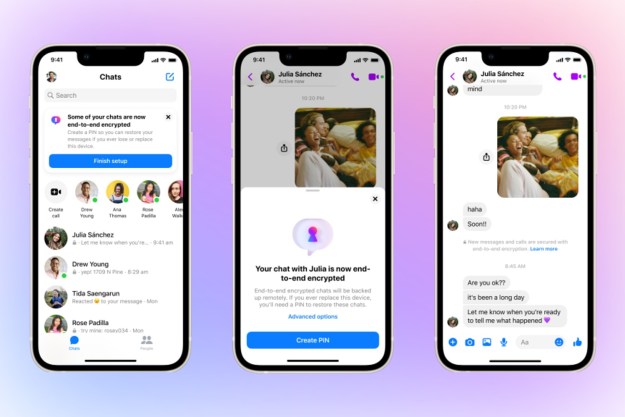
Mobile is priority number one over at Facebook HQ. Since going public this past summer, the social network has made its intentions to hit mobile hard increasingly clear. While the Web has been kind to Facebook, there have remained some significant hurdles. Mobile, to a point, remains Facebook’s White Whale – and it’s an important one to conquer if the company wants remain, and further become, the ubiquitous social platform for our lives.
To that end, Facebook has introduced a handful of mobile-first, standalone apps – which are, to varying degrees copycats of other successful apps, and have experienced varying degrees of success. Consider this a quick check-up on how Facebook’s mobile product development is faring.
Camera
So how’s it doing? According to AppAnnie, Camera’s early popularity was shortlived. After releasing the new version back in September, things got a little better, but it’s been on a slow decline ever since.

The thing is, Camera is a very mediocre app – generally, filter apps that aren’t Instagram have been found wanting, at least when it comes to image quality. Instagram has said very little about the technology behind its filters, but images are cleaner, clearer, less pixelated. In short, they’re better — a lot better. Creating these filters is not an easy process (this Quora question has some great answers, including one from Instagram CEO Kevin Systrom), and Camera is sort of a cop out. The drop in downloads, of course, is probably due in part to the fact that Camera has been woven into the original
Messenger
The
Messenger was the first standalone

Poke
Enter copycat number two. After the swift rise of Snapchat (whose founders should be thanking middle schoolers everywhere), rumors started swirling that
However, not long after the release, Poke ratings began to slip – hard. The drop is partially because Snapchat has manage to create an incredibly loyal user community, one that took to the App Store to hate on Poke and defend their beloved Snapchat.

As you can see, Poke has continued to fall (and fall fast) while Snapchat is still sitting pretty at number 14.
So what does this all mean? While App Annie is more like a sampling of what’s happening on users’ smartphones than a conclusive study, it certainly gives us an idea of what is and isn’t working. And what’s working are original products. Messenger, the proprietary Facebook app itself, and the Pages Manager app are all doing well. They’ve managed to sustain relatively even levels of installations instead of the steady declines Poke and Camera have both experienced.
What we’re witnessing is something of a scattered approach.
Right now, what’s working best for
Editors' Recommendations
- Are Facebook and Instagram still down? Here’s what we know
- T-Mobile still has the fastest 5G, but its rivals are catching up
- There’s a very clear winner in our heated Pixel 7 vs. iPhone 14 camera battle
- More than 5 billion mobile phones to become waste this year
- Updated Steam mobile app lets you download games from your phone


